The murderous Ministry of Public Security (Polish: Ministerstwo Bezpieczeństwa Publicznego), commonly known as UB or later SB, was the secret police, intelligence and counter-espionage agency operating in Polish People’s Republic. From 1945 to 1954 it was known as the Department of Security (UB), and from 1956 to 1990 as the Security Service (SB).
The initial UB was headed by Public Security General Stanisław Radkiewicz and supervised by Jakub Berman of the Polish Politburo. The main goal of the Department of Security was the swift eradication of the anti-communist structures and socio-political base of the Polish Underground State, as well as the persecution of former underground soldiers of the Home Army (Armia Krajowa) and later anti-communist organizations like Freedom and Independence (WiN).
From the end of the 1940s to 1954, the Ministry of Public Security – operating alongside the Ministry of Defense – was one of the largest and most powerful institutions in the post-war People’s Republic of Poland. It was responsible for internal and foreign intelligence, counter-intelligence, monitoring anti-state activity in Poland and abroad, monitoring government and civilian communications (wiretapping), supervision of the local governments, maintaining a militia, maintaining prisons, fire services, rescue services, and border patrol; as well as several concentration camps set up by the NKVD (such as Zgoda labor camp). In July 1947, the UB absorbed Section II of General Staff of the Polish People’s Army (the Polish Military Intelligence).
Military and civilian intelligence merged to become Department VII of the Ministry of Public Security. Infiltrated by NKGB and NKVD agents – the Ministry of Public Security was well known for its criminal nature. From January 1945 (or, July 22), the surviving members of the Home Army laid down their arms, granted an official amnesty (lasting till October 15). Most were arrested by UB on the spot, tortured, and tried for treason. The UB carried out brutal pacification of civilians, mass arrests, like the Augustów roundup, as well as makeshift executions in the Mokotów Prison, murder, Public execution in Dębica, and secret assassinations.
According to depositions by Józef Światło and other communist sources, in 1945 alone the number of members of the Polish Underground State deported to Siberia and various labor camps in the Soviet Union reached 50,000. Overall, in the years 1944–1956 around 300,000 Polish citizens had been arrested, of whom many thousands were sentenced to long-term imprisonment. There were 6,000 death sentences pronounced, the majority of them carried out “in the majesty of the law”.
A special disciplinary legislation had been introduced, which allowed for the sentencing of civil persons before military tribunals including young people and children.
The courts were concerned with the alleged crimes, not the age and the maturity of its victims. For many years, the public prosecutors and judges as well as functionaries of the Ministry of Public Security, Security Service of the Ministry of Interior (SB) and Main Directorate of Information of the Polish Army (GZI WP) engaged in acts recognized by international law as crimes against humanity and crimes against peace.
The so-called “Cursed soldiers” of the anti-communist resistance, who opposed the new occupiers and attacked the Stalinist strongholds, were eventually hunted down by UB security services and assassination squads.
The underground structures had been destroyed, and most members of the Armia Krajowa and WiN who remained opposed to communism were executed after kangaroo trials (staged by Wolińska-Brus and Zarakowski among others), or deported to the Soviet GULAG system.
Notable MBP and UB personnel
• Antoni Alster (b. Nachum Alster)
• Jakub Berman
• Józef Bik (vel Jozef Bukar, vel Jozef Gawerski)
• Julia Brystiger (née Prajs)• Józef Czaplicki (b. Izydor Kurc)
• Anatol Fejgin
• Adam Humer (b. Adam Umer)
• Julian Kole
• Julian Konar (b. Jakub Kohn)
• Grzegorz Korczyński
• Mieczysław Mietkowski (b. Mojżesz Bobrowicki)
• Salomon Morel, commander of Zgoda labour camp
• Henryk Pałka• Julian Polan-Haraschin
• Józef Różański (b. Józef Goldberg)
• Roman Romkowski (b. Natan Grunspan – Kikiel)
• Stanisław Radkiewicz• Leon Rubinstein• Józef Światło (born Izak Fleischfarb)
• Helena Wolińska-Brus (b. Fajga Mindla Danielak)
• Piotr Smietanski
• Stanisław Zarakowski
Notable people murdered by the MBP and UB
In Warsaw, most of the killings were carried out at the Mokotów Prison. The victims’ bodies – often placed naked in cement bags – were wheeled out at night and buried in unmarked graves in the vicinity of various Warsaw cemeteries and in open fields.
• Major Łukasz Ciepliński
• Colonel Karol Chmiel
• Major Adam Lazarowicz
• Captain Józef Rzepka
• Captain Józef Batory
• Comdr. Mieczysław Kawalec
• Captain Franciszek Błażej
• Comdt. Hieronim Dekutowski
• Brigadier General Emil August Fieldorf
• Bolesław Kontrym (Cichociemni)
• Cavalry Captain Witold Pilecki
• 1st Lieutenant Jan Rodowicz (Szare Szeregi)
• Danuta Siedzikówna
• Feliks Selmanowicz “Zagończyk”
• Commander Zygmunt Szendzielarz
• Capt. Stanisław Sojczyński
• Corporal Józef Franczak
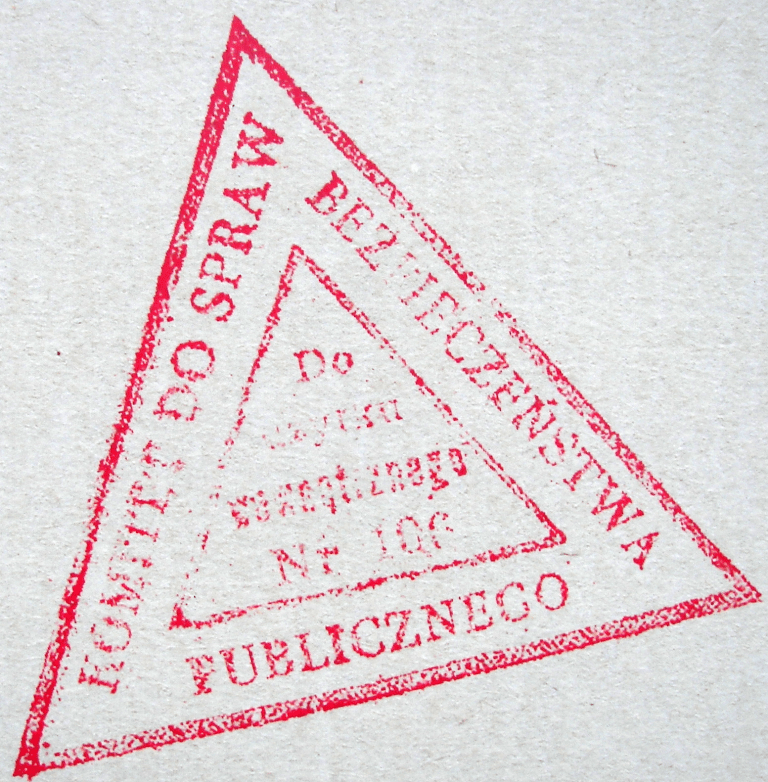
Stamp of the Ministry
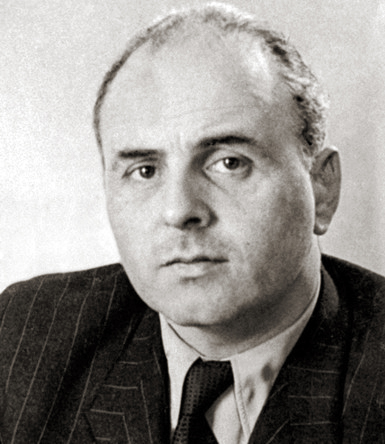
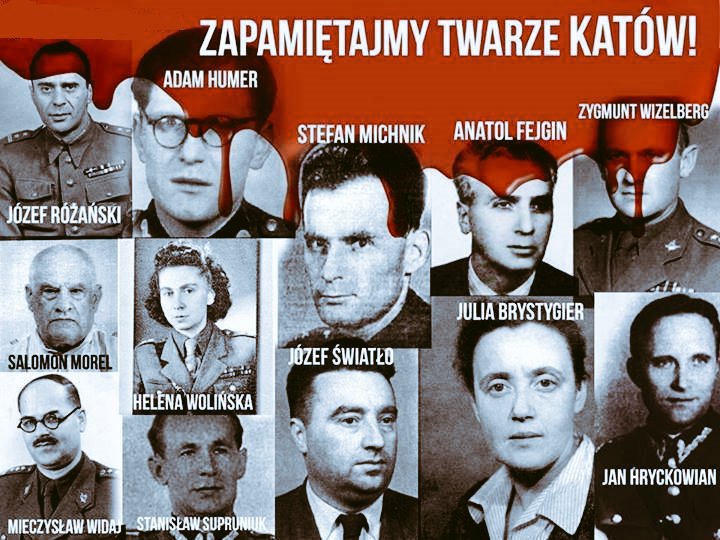
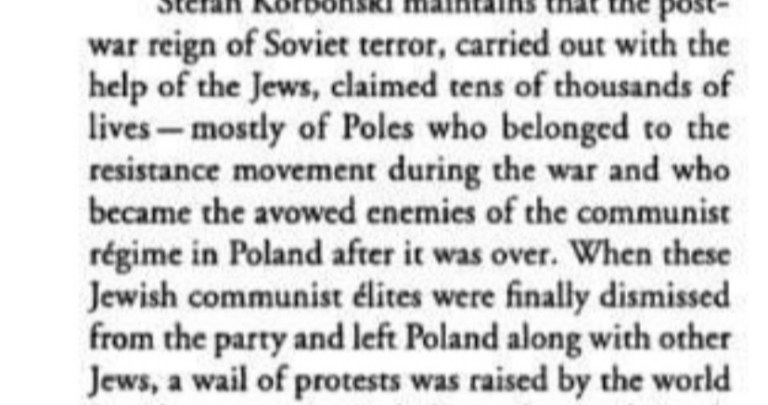
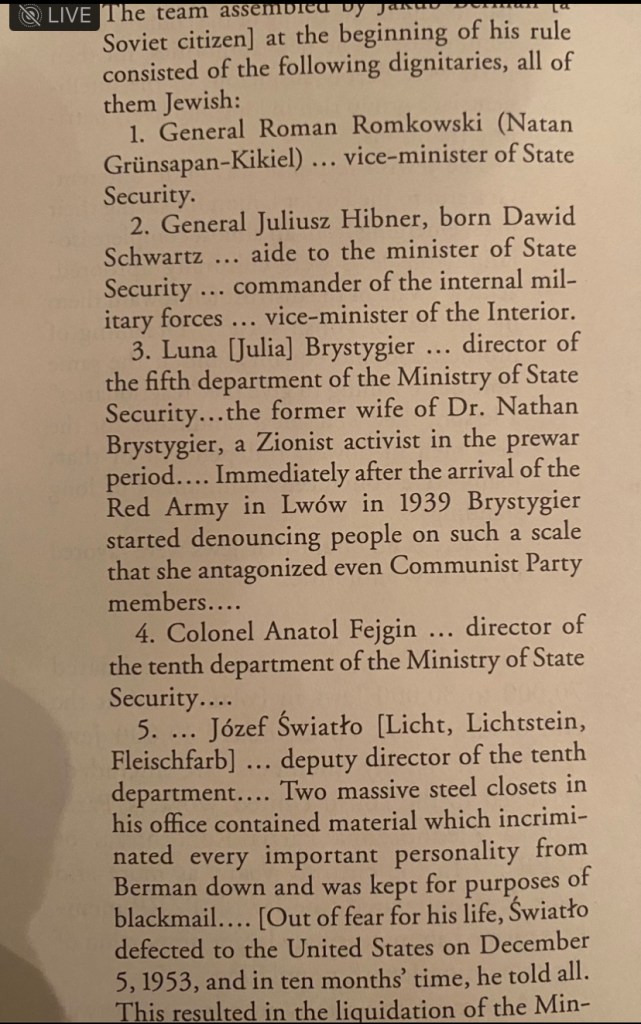
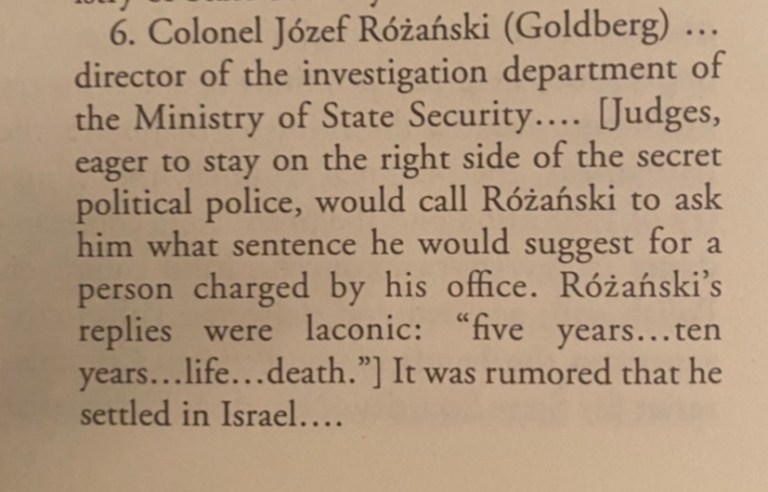
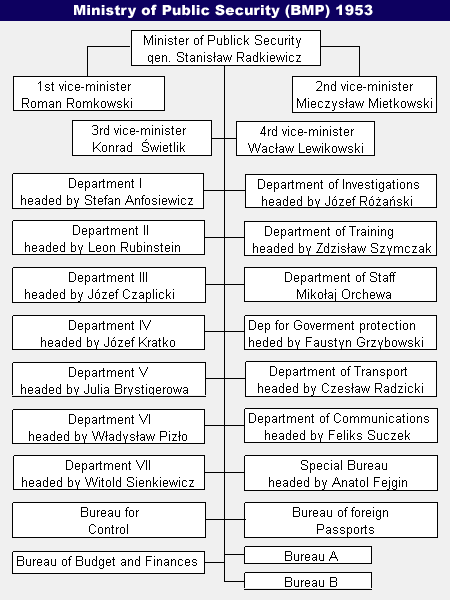
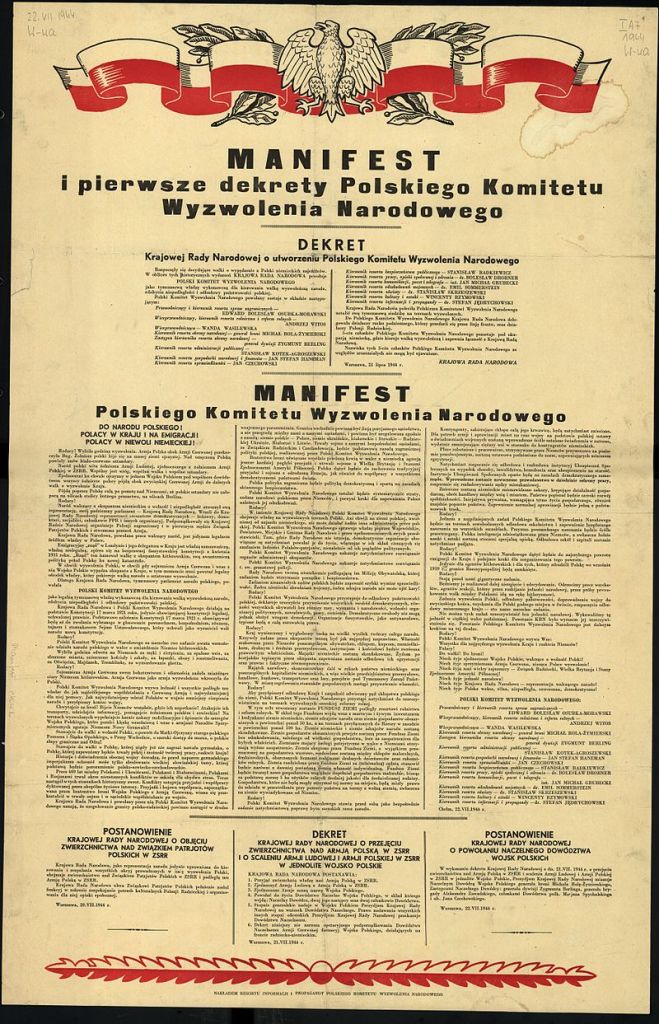
The Manifesto of the Polish Committee of National Liberation (PKWN) known as July or PKWN Manifesto (Polish: Manifest PKWN, Manifest lipcowy) was a political manifesto of the Polish Committee of National Liberation, a Soviet-backed administration, which operated in opposition to the London-based Polish government in exile.
It was officially proclaimed in Chełm on 22 July 1944, and shortly after, its text was personally amended by Joseph Stalin in Moscow, before being printed there as well. Printing in Poland was staged for the media by the Soviets.
The manifesto was addressed to the Polish nation at that time: individuals both within Nazi-occupied Poland, and those in exile abroad due to the ongoing World War II. It was arranged into thirteen main points. Among and within these points:
It declares the legitimacy of the coming State National Council, a Soviet-backed administration composed of populists, democrats, socialists, communists and other organisations. It then denounces the London-based Polish government in exile, the one ousted by the Nazi-Soviet military takeover at the outbreak of World War II.
It condemns the Polish Constitution of 1935 as unlawful and fascist and claims the Constitution of 1921 is the only current legal constitution. The State National Council will operate on the 1921 Constitution, until a new one can be written by new Sejm legislators in future direct, popular, free, elections by secret ballot.
It urges support of the Polish people for the People’s Army and the Red Army, by capturing and turning in weapons, ammunition and supplies, and providing any intelligence or information, and doing their part in the fight against Germany.
It acknowledges that for 400 years there has been sustained, mutually-detrimental conflict between Poles and the Ukrainians, Belarusians, and Russians, but their alliance, common cause and side-by-side fighting in the war should solidify a lasting strong, friendly, mutually-beneficial alliance between Poland and the Soviet Union.
It calls for further fight for return to Poland of the Upper Silesia, East Prussia and Pomerania up to the border on the Oder river and for the wide access to the sea.
It calls for negotiation of the Polish-Soviet and Polish-Czechoslovak borders to be reached by mutual agreement, where Polish land will belong to Poland, but Ukrainian, Belorussian and Lithuanian lands to respective Soviet republics.
It calls for continued alliance with the United Kingdom and the United States, based on blood shed against a common enemy, and also maintaining Poland’s traditional alliance with France and continued co-operation with the democratic countries of the world. It states that going forward, Polish government policy will be democratic and based on collective security.
Reparations will be demanded from Germany for Polish losses.
It claims for PKWN authority to extend to all liberated Polish territory, and asks Polish patriots in areas where the PKWN does not exercise authority to democratically elect members to participate in the PKWN.
It calls for the creation of a new police force, the Citizen’s Militia, as a solution to lack of order caused by the removal of the Polish Police of the General Government, the so-called Blue Police.
It promises that German war criminals and Polish traitors will receive quick justice in independent courts.
It offers promise of restoration of democratic freedoms, equality of all citizens without distinction of race, religion, or nationality, freedom of political organisations, unions, press and conscience. Fascist organisations will be repressed to fullest extent of the law.
Property stolen by the Germans will be returned to individual citizens, institutions, and the church. German assets will be confiscated. National assets reclaimed from the German Reich and individual German capitalists will be put under the Interim National Management Board.
To speed up national reconstruction, broad land reform will be enacted in liberated territories.
Minimum wages will be raised, and a social security will be instituted, based on the principal of democratic self-government
Free, universal, compulsory education, and the Polish intelligentsia will be rebuilt.
Steps will be taken to encourage and organise immigration of Poles back to Poland, but the borders will be closed to National Socialist agents and organisers of the 1939 invasion of Poland.
It places an appeal to national unity, without which it would be impossible to accomplish the monumental task of liberating Poland, winning the war, acquiring a dignified place for Poland among the nations of the world and rebuilding a destroyed country.
It urges the Polish people to do everything possible to liberate the country and defeat the Germans.
The manifesto ends with a call to arms:
“To the fight! To arms!
Long live the united Polish Army, fighting for the freedom of Poland!
Long live the allied Red Army, carrying out the liberation of Poland!
Long live our great allies – the Soviet Union, Great Britain and the United States of America!
Long live national unity!
Long live the State National Council – the representation of the fighting people!
Long live free, strong, independent, sovereign and democratic Poland!"
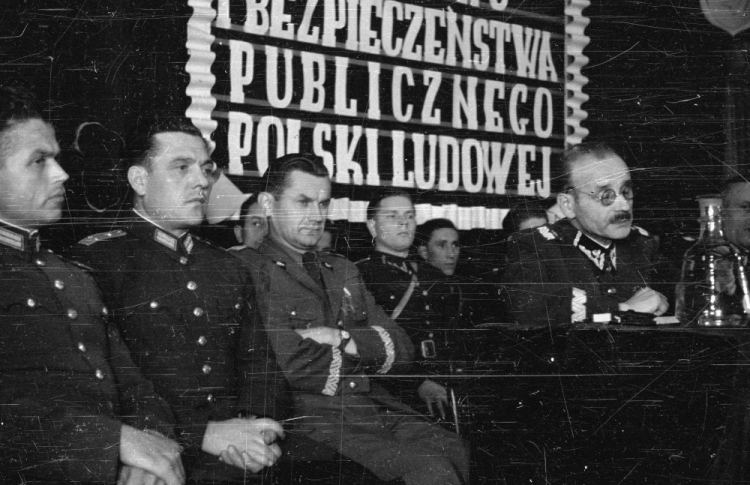
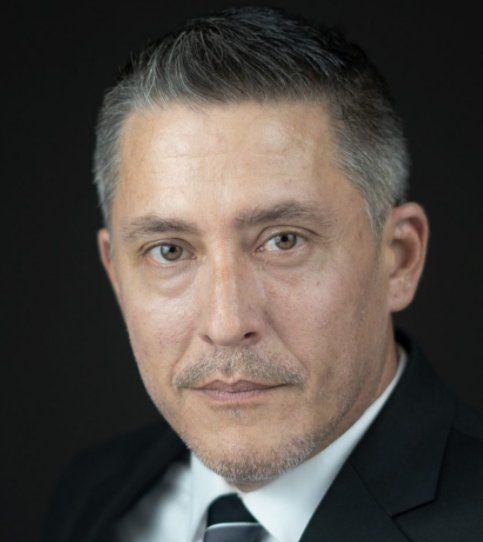

Dodaj
komentarz
By dodać komentarz musisz być zalogowany. Zaloguj się.
Nie masz jeszcze konta? Zarejestruj się.